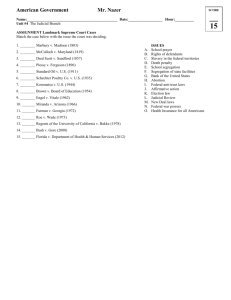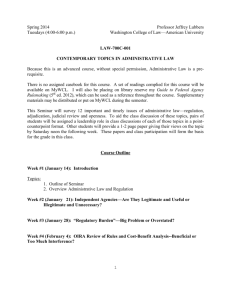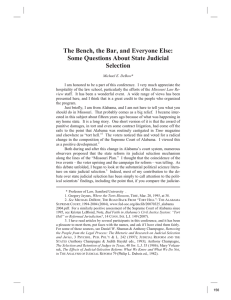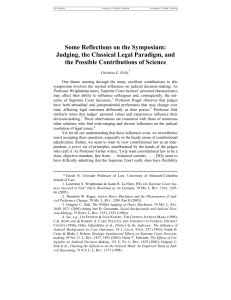Centennial Honors College Western Illinois University Undergraduate Research Day 2014
advertisement
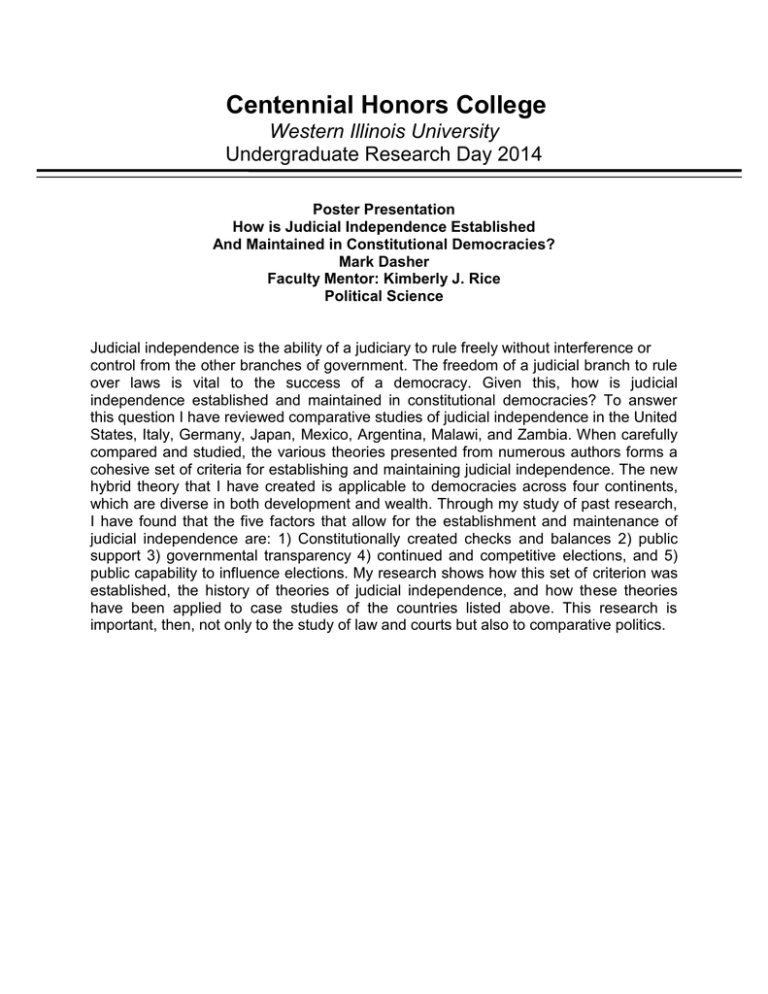
Centennial Honors College Western Illinois University Undergraduate Research Day 2014 Poster Presentation How is Judicial Independence Established And Maintained in Constitutional Democracies? Mark Dasher Faculty Mentor: Kimberly J. Rice Political Science Judicial independence is the ability of a judiciary to rule freely without interference or control from the other branches of government. The freedom of a judicial branch to rule over laws is vital to the success of a democracy. Given this, how is judicial independence established and maintained in constitutional democracies? To answer this question I have reviewed comparative studies of judicial independence in the United States, Italy, Germany, Japan, Mexico, Argentina, Malawi, and Zambia. When carefully compared and studied, the various theories presented from numerous authors forms a cohesive set of criteria for establishing and maintaining judicial independence. The new hybrid theory that I have created is applicable to democracies across four continents, which are diverse in both development and wealth. Through my study of past research, I have found that the five factors that allow for the establishment and maintenance of judicial independence are: 1) Constitutionally created checks and balances 2) public support 3) governmental transparency 4) continued and competitive elections, and 5) public capability to influence elections. My research shows how this set of criterion was established, the history of theories of judicial independence, and how these theories have been applied to case studies of the countries listed above. This research is important, then, not only to the study of law and courts but also to comparative politics.


